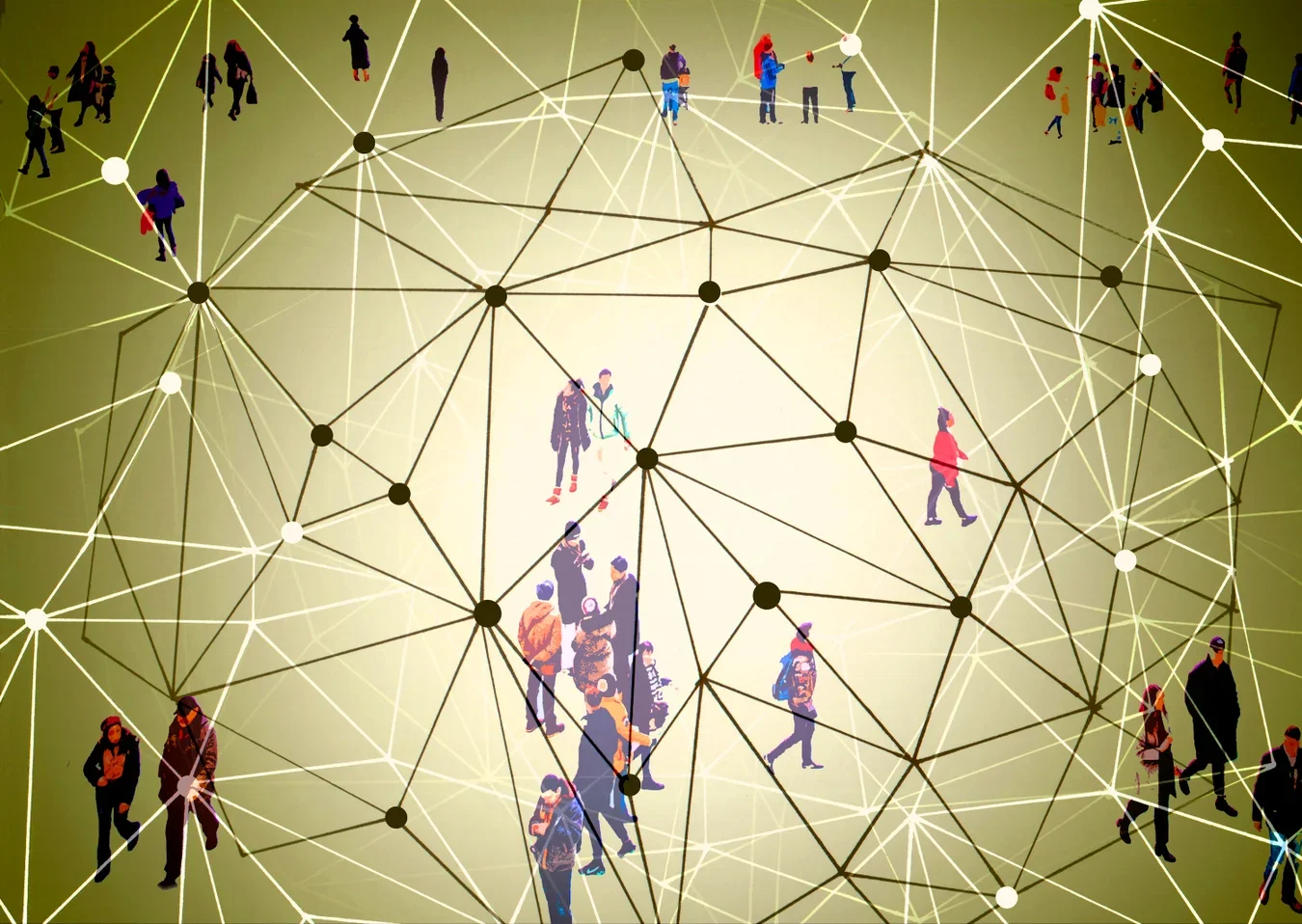We study how humans navigate the complexity of social life.
Our work spans many levels—from laboratory experiments that characterize the dynamics between two individuals, to complex social networks comprising hundreds of people who shape and bias each other’s behavior.
LEARN ABOUT OUR RESEARCHFeatured Publications

Aslarus et al. (2025)
Early insight into social network structure predicts climbing the social ladder.
Early insight into social network structure predicts climbing the social ladder.

Xia et al. (2025)
Knowledge of information cascades through social networks facilitates strategic gossip.
Knowledge of information cascades through social networks facilitates strategic gossip.

Son et al. (2024)
Replay shapes abstract cognitive maps for efficient social navigation.
Replay shapes abstract cognitive maps for efficient social navigation.

Son et al. (2023)
Abstract cognitive maps of social network structure aid adaptive inference.
Abstract cognitive maps of social network structure aid adaptive inference.

de Bruin et al. (2023)
Shared neural representations and temporal segmentation of political content predict ideological similarity.
Shared neural representations and temporal segmentation of political content predict ideological similarity.

van Baar et al. (2021)
Latent motives guide structure learning during adaptive social choice.
Latent motives guide structure learning during adaptive social choice.

Heffner et al. (2021)
Emotion prediction errors guide socially adaptive behavior.
Emotion prediction errors guide socially adaptive behavior.

FeldmanHall & Nassar (2021)
The computational challenges of social learning.
The computational challenges of social learning.

van Baar et al. (2021)
Intolerance of uncertainty modulates brain-to-brain synchrony during politically polarized perception.
Intolerance of uncertainty modulates brain-to-brain synchrony during politically polarized perception.
Lab News


